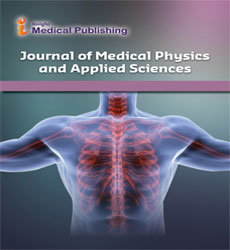An Essential Aspect of Patient Care in Dose Calculation Medicine
Efi Koutsouveli
Department of Ergonomics, Shahid Beheshti University of Medical Sciences, Tehran, Iran
DOI10.36648/2574-285X.9.1.59
Efi Koutsouveli*
Department of Ergonomics, Shahid Beheshti University of Medical Sciences, Tehran, Iran
- *Corresponding Author:
- Efi Koutsouveliw
Department of Ergonomics,
Shahid Beheshti University of Medical Sciences, Tehran,
Iran,
E-mail: efi@gmail.com
Received date: February 27, 2024, Manuscript No. IPIMP-24-18935; Editor assigned date: February 29, 2024, PreQC No. IPIMP-24-18935 (PQ); Reviewed date: March 14, 2024, QC No. IPIMP-24-18935; Revised date: March 21, 2024, Manuscript No. IPIMP-24-18935 (R); Published date: March 28, 2024, DOI: 10.36648/2574-285X.9.1.59
Citation: Koutsouveli E (2024) An Essential Aspect of Patient Care in Dose Calculation Medicine. J Med Phys Appl Sci Vol.9.No.1: 59.
Description
This critical process involves the meticulous determination of the quantity and frequency of medication or radiation required to achieve therapeutic goals while safeguarding patient wellbeing. Let's delve deeper into the importance, methods, tools, challenges, and future directions of dose calculation. Precision and efficacy is accurate calculation of doses ensures that patients receive optimal therapeutic benefits. Whether administering chemotherapy, antibiotics, or radiation, precision in dosing directly correlates with treatment efficacy. Dose calculation plays a pivotal role in patient safety by minimizing the risk of adverse effects and toxicity. Tailoring doses to individual patient characteristics such as weight, age, renal or hepatic function, and disease status helps mitigate potential harm. Dose calculation enables personalized medicine by considering patient-specific factors that influence drug metabolism, distribution, and elimination. This approach leads to tailored treatment plans that optimize outcomes.
Methods of dose calculation
Pharmacokinetic modelling is pharmacologists use mathematical models to simulate drug behaviour in the body based on factors like absorption, distribution, metabolism, and excretion. These models guide dose optimization to achieve desired drug concentrations. In radiation oncology, sophisticated software tools like treatment planning systems calculate radiation doses based on tumour characteristics, proximity to critical structures, and desired treatment outcomes. This process ensures precise delivery of therapeutic radiation while sparing healthy tissues. Many chemotherapy drugs and paediatric medications are dosed according to BSA or weight to adjust for variations in drug distribution and metabolism among individuals. For drugs with narrow therapeutic windows, TDM involves measuring drug concentrations in blood to optimize dosing and minimize toxicity. Healthcare providers rely on specialized software to calculate drug doses based on patientspecific parameters such as weight, age, organ function, and drug pharmacokinetics. Integrated EHR systems provide a comprehensive platform for storing and accessing patient data relevant to dose calculation, ensuring continuity of care and accurate medication history. High-resolution imaging techniques like CT scans and MRI play a crucial role in radiation therapy by facilitating precise tumor delineation and dose planning.
Personalized treatment
Genetic differences, comorbidities, and concomitant medications contribute to variability in drug response, necessitating individualized dose adjustments. Understanding and managing potential interactions between medications is essential to avoid adverse effects and optimize therapeutic outcomes. Balancing the desired therapeutic effects with potential risks and toxicities requires a nuanced approach to dose calculation, especially in vulnerable patient populations. The future of dose calculation in medicine is poised for further advancements driven by technology and precision medicine, Leveraging genetic and biomarker data to tailor doses based on individual patient characteristics. AI algorithms can analyse large datasets to optimize dosing strategies, predict drug responses, and identify personalized treatment regimens. Continuous monitoring of patient parameters through wearable devices can enable dynamic dose adjustments, enhancing therapeutic outcomes while minimizing risks. In conclusion, dose calculation is a fundamental aspect of patient-centred care that underpins treatment efficacy, safety, and individualized medicine. By harnessing cutting-edge technologies and embracing personalized approaches, healthcare providers can continue to refine dose calculation practices and deliver optimal care to diverse patient populations.
Open Access Journals
- Aquaculture & Veterinary Science
- Chemistry & Chemical Sciences
- Clinical Sciences
- Engineering
- General Science
- Genetics & Molecular Biology
- Health Care & Nursing
- Immunology & Microbiology
- Materials Science
- Mathematics & Physics
- Medical Sciences
- Neurology & Psychiatry
- Oncology & Cancer Science
- Pharmaceutical Sciences
